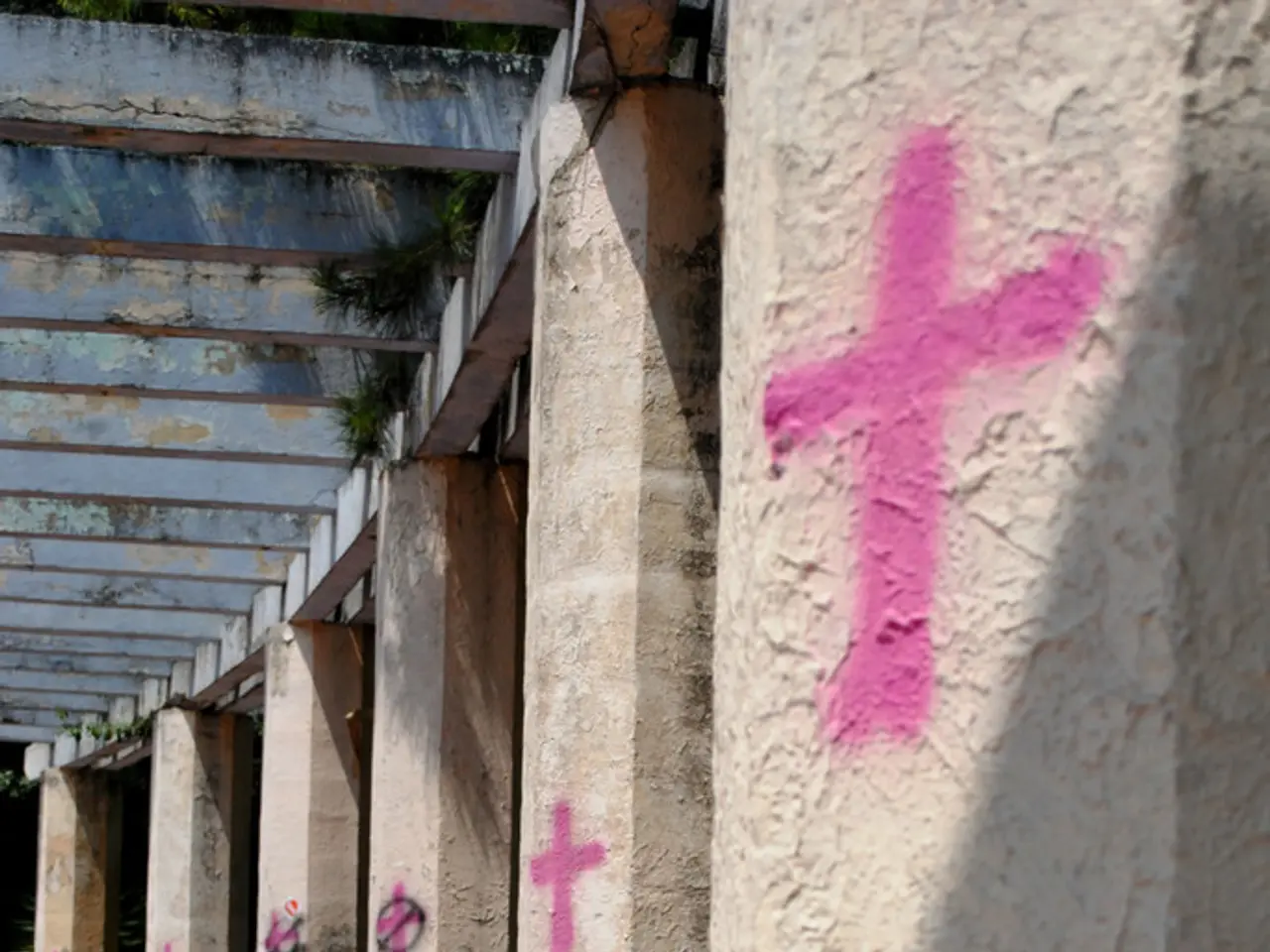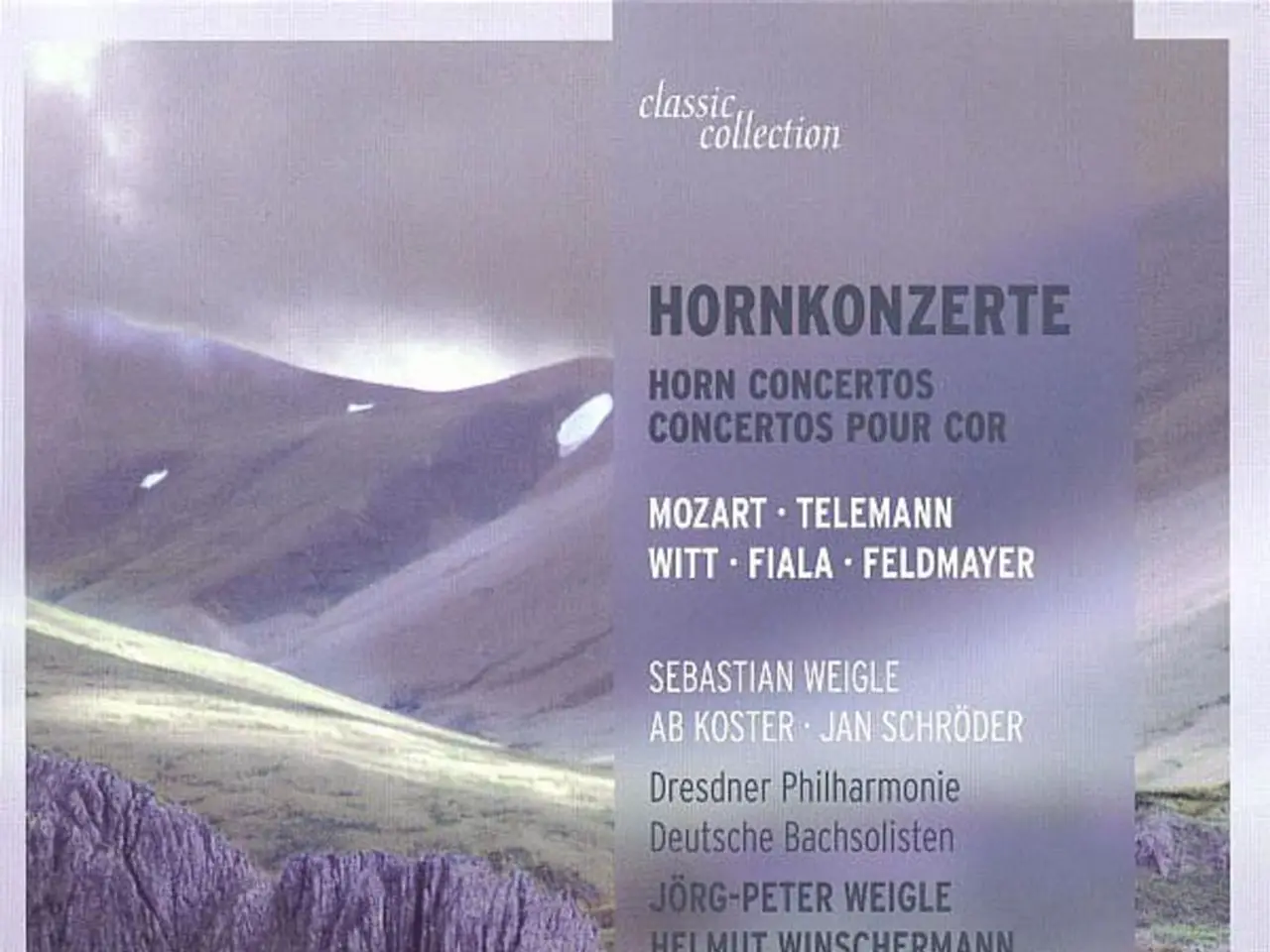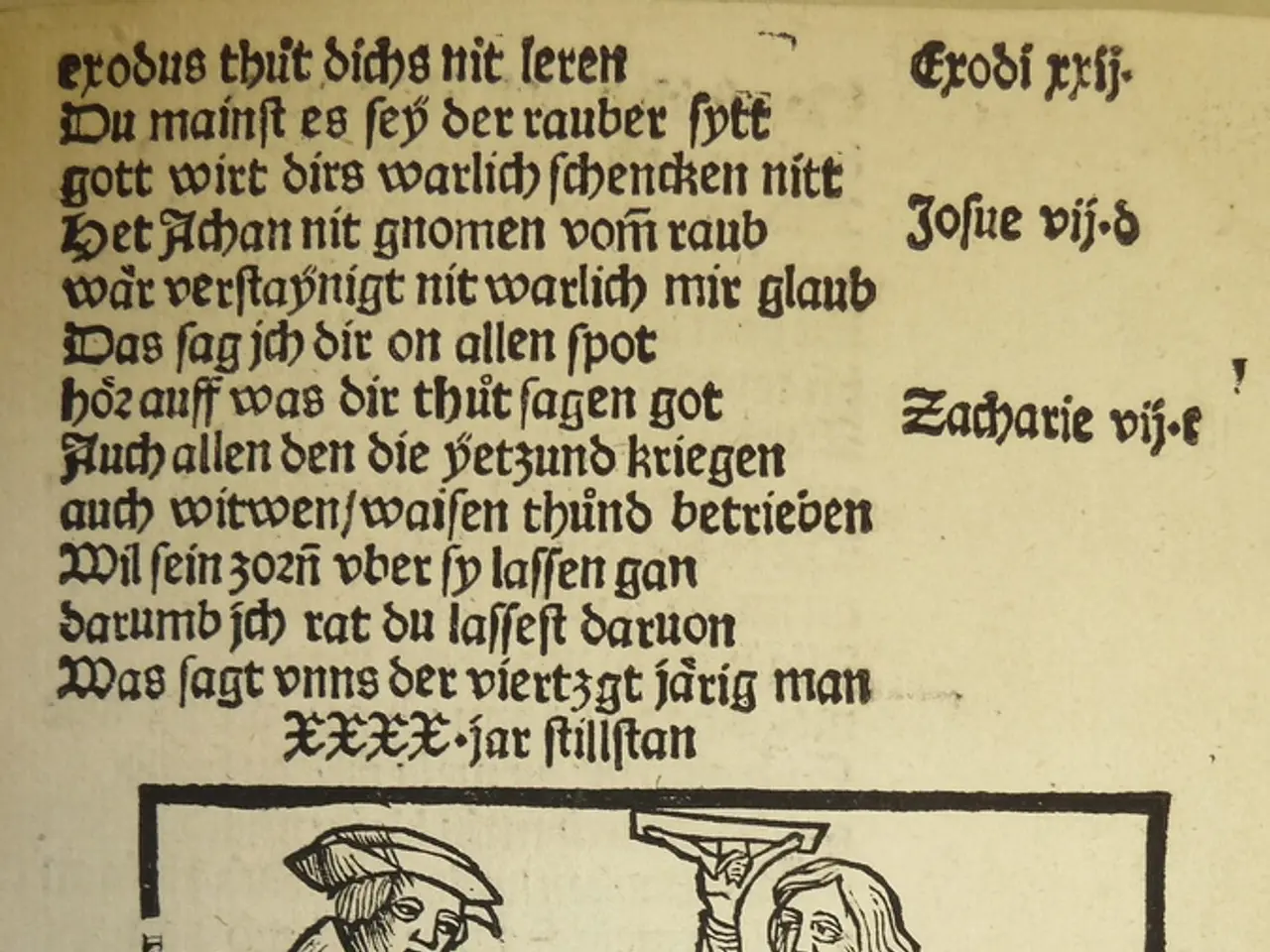Critique: Jonathan Rauch's Book, 'Cross Purposes: Christianity's Strained Alliance with Democracy'
In the third season of The White Lotus, a conversation between three women sheds light on a cultural divide that is deeply rooted in American society – the intersection of religion and politics. One of the women, Kate, has been attending church regularly since moving to Austin, Texas. However, her friends' inquiry about the church's nature hints at the politically charged environment surrounding religious practices, particularly evangelical Christianity, in the United States.
This intertwining of religion and politics is significant, as it creates a charged environment where religious choices become proxies for political allegiance and cultural conflict. The implications for religion and democracy are substantial, as this fusion challenges the traditional secular boundaries between religion and state, affects democratic discourse and pluralism, and raises questions about the role of religion in public life.
One key factor contributing to this dynamic is the growing political influence of white evangelicals within the Republican Party. Despite a declining share of the population identifying as white evangelical (around 13% in 2024), evangelicals have become politically dominant within the Republican Party. This "evangelical capture" means religious beliefs directly shape political agendas and rhetoric, especially on cultural issues, intensifying the politicization of church attendance and faith practices.
Historically, churches and pastors have become active in partisan politics, sometimes endorsing candidates, hosting campaigns, and mobilizing voters. This escalated after the 2004 elections with the Christian Right pushing back against regulations like the Johnson Amendment, which restricts political endorsements by tax-exempt churches. These developments further politicize religious spaces and conversations about church involvement.
Religious affiliation, particularly evangelical Protestantism, is often linked to conservative cultural politics in the U.S. This association turns even personal or communal practices like church attendance into symbols in broader cultural and political "wars," making church discussions prone to political arguments.
Jonathan Rauch’s recent analysis highlights that the political entanglement of Christianity can distort both religion’s role and democratic health. When religion fuses with one political camp, it risks alienating non-adherents, undermines religious pluralism, and intensifies polarization. Such conditions challenge healthy democratic debate and the ability of citizens to engage across belief differences.
Unlike the U.S., other secular democracies like Canada experience less religious-political fusion due to different historical trajectories of religious influence on politics. There, the decline of religion’s political power reduces the likelihood that church discussions become political flashpoints.
In light of these challenges, the book Cross Purposes: Christianity's Broken Bargain With Democracy proposes solutions for Christianity to engage productively with liberal democracy and uphold the tenets of the Constitution. The book suggests the renewal of spiritual formation through a return to Christly principles, the reinvigoration of 'civic theology', and the pursuit of compromise through negotiation.
Moreover, proponents of secular liberalism might benefit from reaffirming religious freedom, advocating for the vitality of Christian institutions, and engaging inclusively with Christian perspectives on culture, morality, and philosophy where these ideas are consonant with the broad vision of liberty, justice, pluralism, and democracy set out in the Constitution.
In conclusion, the politicization of church attendance in the United States is a complex issue that challenges both religion and democracy. It is crucial to find a balance between free religious expression and secular governance to preserve both religious vitality and democratic health. Rauch’s work suggests the need for a renewed approach to disentangle religion from partisan politics to ensure a healthy and inclusive democratic society.
[1] Rauch, J. (2022). Cross Purposes: Christianity's Broken Bargain With Democracy. Princeton University Press. [2] Gibson, J. L., & Wineburg, S. (2022). The Religious Factor: Politics, Culture, and Society. Oxford University Press. [3] Green, D. P., & Smith, R. C. (2022). American Grace: How Religion Divides and Unites Us. Knopf. [4] Rauch, J. (2021). The Constitution of Knowledge: A Defense of Truth. Princeton University Press. [5] Iannacone, L. J. (2020). Religion in Contemporary America: Culture, Controversy, and Change. Sage Publications.
- The politicization of church attendance in the United States has significant implications for religion and democracy, as it challenges the traditional secular boundaries between religion and state and intensifies cultural conflict.
- The growing political influence of white evangelicals within the Republican Party contributes to this dynamic, as religious beliefs shape political agendas and rhetoric, especially on cultural issues.
- In contrast, secular democracies like Canada experience less religious-political fusion due to different historical trajectories of religious influence on politics, reducing the likelihood that church discussions become political flashpoints.
- To ensure a healthy and inclusive democratic society, Rauch's work suggests the need for a renewed approach to disentangle religion from partisan politics and uphold the tenets of the Constitution, such as religious freedom and free religious expression.




